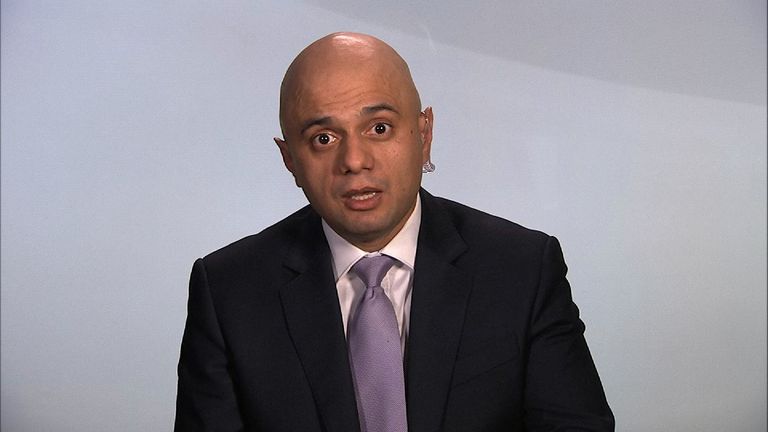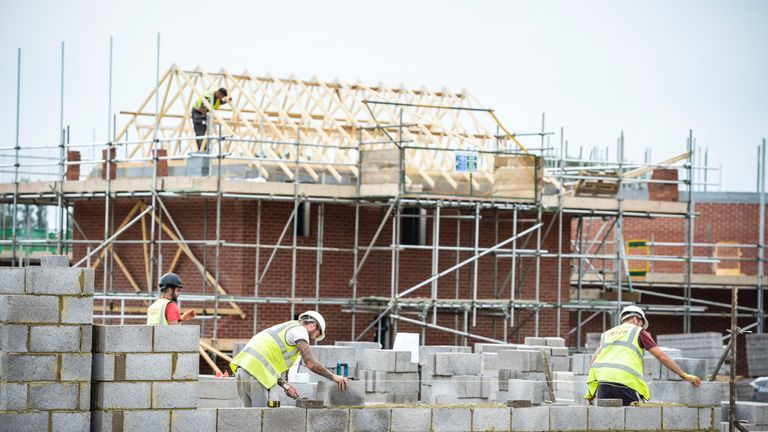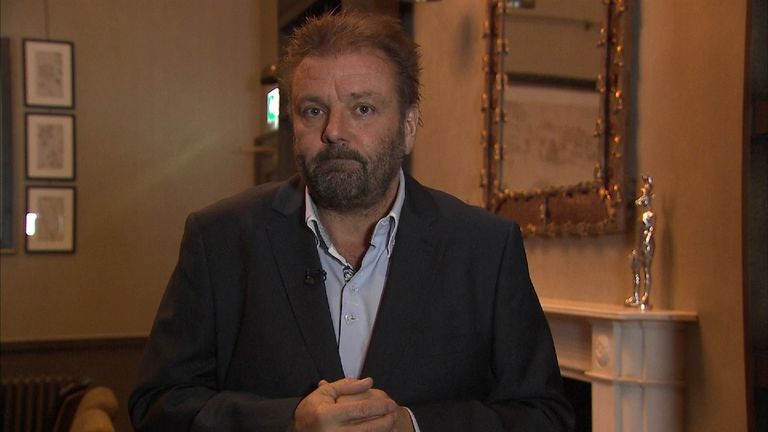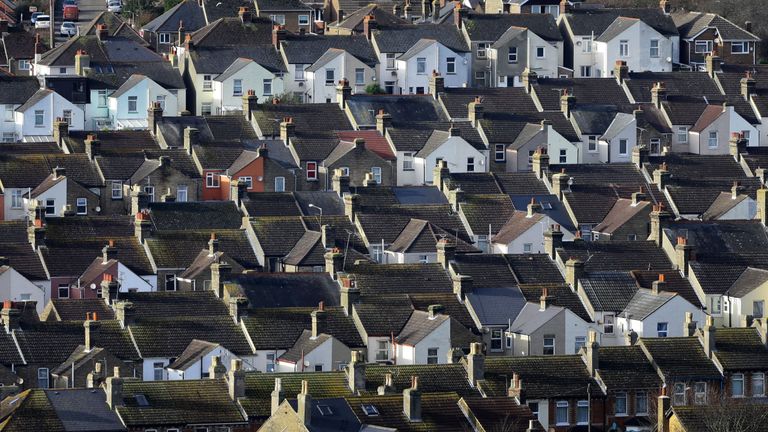Government plans thousands more homes to be built by small firms
Minister hopes more than 25,000 new homes will be built by 2020 but Labour says the plans are "feeble beyond belief".
Tuesday 7 February 2017 10:19, UK
The Government is pledging to fix Britain's "broken housing market" as it unveils plans to build thousands of new homes.
A £3bn fund is to be created to help small firms build more houses, with 60% of new homes currently being built by just 10 big building firms.
The Government's aim is to help small firms build more than 25,000 new homes by 2020 - and up to 225,000 in the long-term - by providing them with loans.
Communities Secretary Sajid Javid is publishing a housing White Paper which is aimed at helping first-time buyers get on the housing ladder.
"People are right to be sceptical - they have heard it before. Successive governments for over 30 years have let people down by not building enough homes," Mr Javid told Sky News.
One of the key announcements, he said, would be "to require all councils to make an honest assessment of the housing need in their area and to plan on that basis".
He added: "At the moment some councils do that - they do the right thing. Other councils frankly can fudge the numbers and do not make those difficult decisions and we're not going to let that happen anymore."
The Government says the White Paper has three aims:
:: Getting the right homes built in the right places
:: Speeding up house building
:: Diversifying the market
"The housing market in this country is broken and the solution means building many more houses in the places that people want to live," says Mr Javid.
"Let's get Britain building."
To help first-time buyers, the White Paper will include plans for a new Lifetime ISA to help them save for a deposit, and extends Right to Buy discounts to housing association tenants.
The Lifetime ISA, to be launched in April, will help younger adults save flexibly for the long-term by giving them a 25% bonus on up to £4,000 of savings a year.
The Government will also consult on measures "to tackle all unfair and unreasonable abuses of leasehold" and move to reduce the number of properties left standing empty.
On the controversial issue of building in the green belt, the White Paper says that "only in exceptional circumstances" can local authorities alter boundaries.
To help those renting a home rather than buying, ministers also say they want more security for renters with longer-term tenancies in the private sector.
The Government says an extra £1.4bn announced in the Chancellor's Autumn Statement will boost the Affordable Homes Programme and initiatives like the Rent to Buy scheme.
The White Paper will also give councils revised powers to speed up the building of new homes, and to place developments where they are most needed.
But it has already been attacked by Labour's shadow housing minister John Healey, who said: "The measures announced so far in Theresa May's long-promised housing White Paper are feeble beyond belief.
"After seven years of failure and 1,000 housing announcements, the housing crisis is getting worse not better."
In Sutton Coldfield in the West Midlands, where 6,000 new homes have been approved for one of the last remaining areas of green belt land around the city of Birmingham, one campaigner said the concerns of thousands of residents were largely ignored.
Suzanne Webb told Sky News: "It is becoming very clear, not just here in Sutton Coldfield but in other areas of England, that planning policy remains in the hands of the decision makers and it is not a policy that is working for everyone.
"It is a policy that excludes its main stakeholders from the process, those stakeholders being the very people who want to buy houses, in the right area, with the right infrastructure and sufficient open space to make it socially and environmentally viable."







